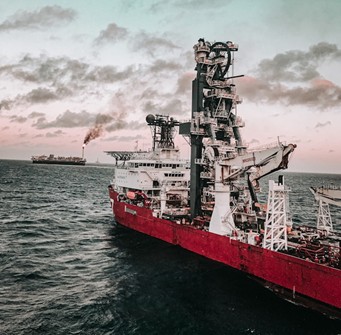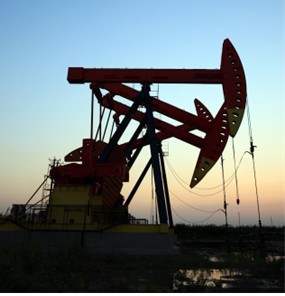
The oil and gas industry is one of the most demanding sectors, requiring reliable equipment and infrastructure capable of withstanding harsh environments. From offshore oil rigs and refineries to pipelines and drilling sites, the components used in oil and gas operations face extreme conditions that can compromise their performance and longevity. One of the critical areas of concern is the protection of electrical cables and connections, which are essential for maintaining the functionality of equipment and systems. Heat shrink tubing plays a pivotal role in safeguarding electrical wiring and connections, offering protection against the chemicals, temperature extremes, and abrasion often encountered in these environments.
Thermo-shrink tubing is a type of plastic tube that contracts when heated, forming a tight, protective covering around wires, cables, and connectors. It is typically made from materials such as polyolefin, PVC, or fluoropolymer. It is used for insulation, mechanical protection, and environmental sealing, making it a vital tool in industries where electrical components need to be safeguarded from external factors.
When applied to electrical cables and connections, the tubing offers several protective functions. It provides electrical insulation, abrasion resistance, and protection from harsh chemicals, making it especially useful in sectors like oil and gas, where cables and connections are exposed to various elements.
Why it is Crucial for the Oil and Gas Industry
The oil and gas industry is known for its rugged, unpredictable conditions, where equipment and electrical systems face constant exposure to chemicals, extreme temperatures, moisture, and physical wear. These challenges make it vital to protect electrical components to ensure the smooth functioning of operations.
Protection Against Chemicals
Cables and connections are often exposed to corrosive chemicals, including petroleum derivatives, solvents, and other harsh substances. This constant exposure can cause wiring insulation to degrade, leading to system failures, short circuits, and safety hazards.
Thermal tubing made from chemical-resistant materials such as fluoropolymers offers a reliable barrier that prevents direct contact between electrical components and harmful chemicals. By applying the tubing, electrical cables and connections are protected from corrosion and chemical breakdown, ensuring that the electrical systems remain intact and functional.
Resilience to Temperature Extremes
The oil and gas industry operates in some of the most temperature-variable environments on the planet. Equipment can be exposed to extreme heat or cold, particularly in offshore drilling operations, desert fields, and arctic regions. Electrical cables and connectors are vulnerable to temperature fluctuations, which can cause expansion, contraction, and eventual failure if they are not adequately protected.
The insulation of the tube is designed to withstand extreme temperatures, with many varieties capable of operating in both high heat and freezing cold. Polyolefin, for instance, is rated for temperatures ranging from -55°C to 135°C/-67°F to 275°F, while fluoropolymer can endure temperatures up to 250°C/482°F. This makes an ideal solution for the extreme temperature conditions encountered in the oil and gas sector, helping to ensure that electrical connections continue to function reliably in even the harshest environments.
Protection Against Abrasion
Cables and electrical connections are often subject to abrasive wear due to constant movement, vibration, and contact with rough surfaces. Whether it’s the constant churning of offshore rigs or the abrasive conditions found in underground drilling, cables can become frayed, torn, or damaged over time if not adequately protected.
Insulated shrink tubing also provides an abrasion-resistant layer that shields electrical components from mechanical wear. This ensures that wires and cables are protected from external damage caused by friction, cutting, or impact, extending the life of the system and reducing the need for frequent replacements or repairs. By acting as a protective sheath, the insulated tubing significantly enhances the durability of electrical cables in these high-wear environments.

Moisture and Water Resistance
Offshore rigs, drilling platforms, and pipelines are often exposed to water, whether from rain, saltwater, or condensation. Moisture can seep into electrical connections, causing corrosion, electrical shorts, and system malfunctions. In areas where flooding or water exposure is frequent, waterproofing becomes a crucial consideration.
The shrink fit provides water-tight seals for electrical cables and connectors, preventing moisture from entering and protecting the internal wiring from water damage. The tubing forms a tight, secure barrier around electrical components, ensuring that moisture doesn’t interfere with the integrity of the electrical system. This feature is especially vital for electrical components used in underwater installations or wet environments where waterproofing is a necessity.
Key Applications
In oil and gas operations, shrink wrap tubing is applied to a wide range of electrical components to ensure durability and performance. Here are some of the critical areas where it is used:
Wiring for Motors and Generators
Motors and generators are vital to oil and gas operations, providing power for everything from drilling rigs to pumping systems. These machines generate significant amounts of heat and are exposed to vibration and harsh environmental conditions. To ensure reliable performance and prevent electrical failures, insulation and protection of the wiring is essential. This helps maintain the integrity of the electrical systems powering these critical machines.
Junction Boxes and Electrical Connections
Junction boxes house and protect electrical connections, which are often subjected to extreme temperatures, moisture, and chemicals in the oil and gas industry. Proper insulation of the wiring within these boxes is essential for maintaining safe and reliable electrical connections, shielding them from harsh environmental factors that could compromise the system’s operation.
Cable Terminations
Electrical cables in this sector often need to be terminated to connect various systems and components. Sealing the ends of these cables helps prevent moisture, corrosion, and abrasion, ensuring the connections remain safe and functional even in challenging conditions. This added protection is crucial to avoid damage that could lead to system failures.
Sensors and Monitoring Equipment
Monitoring equipment, such as sensors for temperature, pressure, and flow rate, plays a critical role in maintaining the safe and efficient operation of oil and gas systems. These sensors, exposed to harsh environmental conditions, require protection for their wires and connections to ensure they continue to function accurately. Proper insulation guarantees the reliability of the data being collected from these vital components, contributing to better system performance.
Benefits of Electrical Insulation
The use of electrical insulation in the oil and gas industry offers several key advantages:
Increased System Reliability: By protecting electrical components from harsh environments, the system remains operational, even in the most demanding conditions.
Reduced Maintenance Costs: Proper insulation reduces the likelihood of electrical failures, minimizing the need for expensive repairs and preventing costly downtime.
Enhanced Safety: Insulation ensures electrical systems are adequately protected, reducing the risk of electrical fires, short circuits, and other safety hazards.
Extended Equipment Life: Shielding electrical components from environmental factors such as moisture, chemicals, and extreme temperatures helps extend their lifespan, reducing the need for frequent replacements.
Improved Efficiency: By maintaining the proper function of electrical components, insulation contributes to optimizing the overall performance and efficiency of oil and gas operations.
Conclusion
The reliability and performance of electrical systems in the oil and gas industry are paramount for the safe and efficient operation of equipment and facilities. By providing adequate protection to cables, connections, and components from exposure to chemicals, moisture, extreme temperatures, and mechanical stress, the industry can ensure continuous, reliable operation. The right insulation solutions help extend the life of electrical systems, improve overall efficiency, and significantly reduce maintenance costs. As the oil and gas industry continues to advance, the integration of high-quality electrical protection will remain essential for maintaining operational safety, efficiency, and reliability across the sector.